Explore Vilnius, Lithuania in 2 Days: The Ultimate Itinerary
Vilnius, Lithuania
2 days
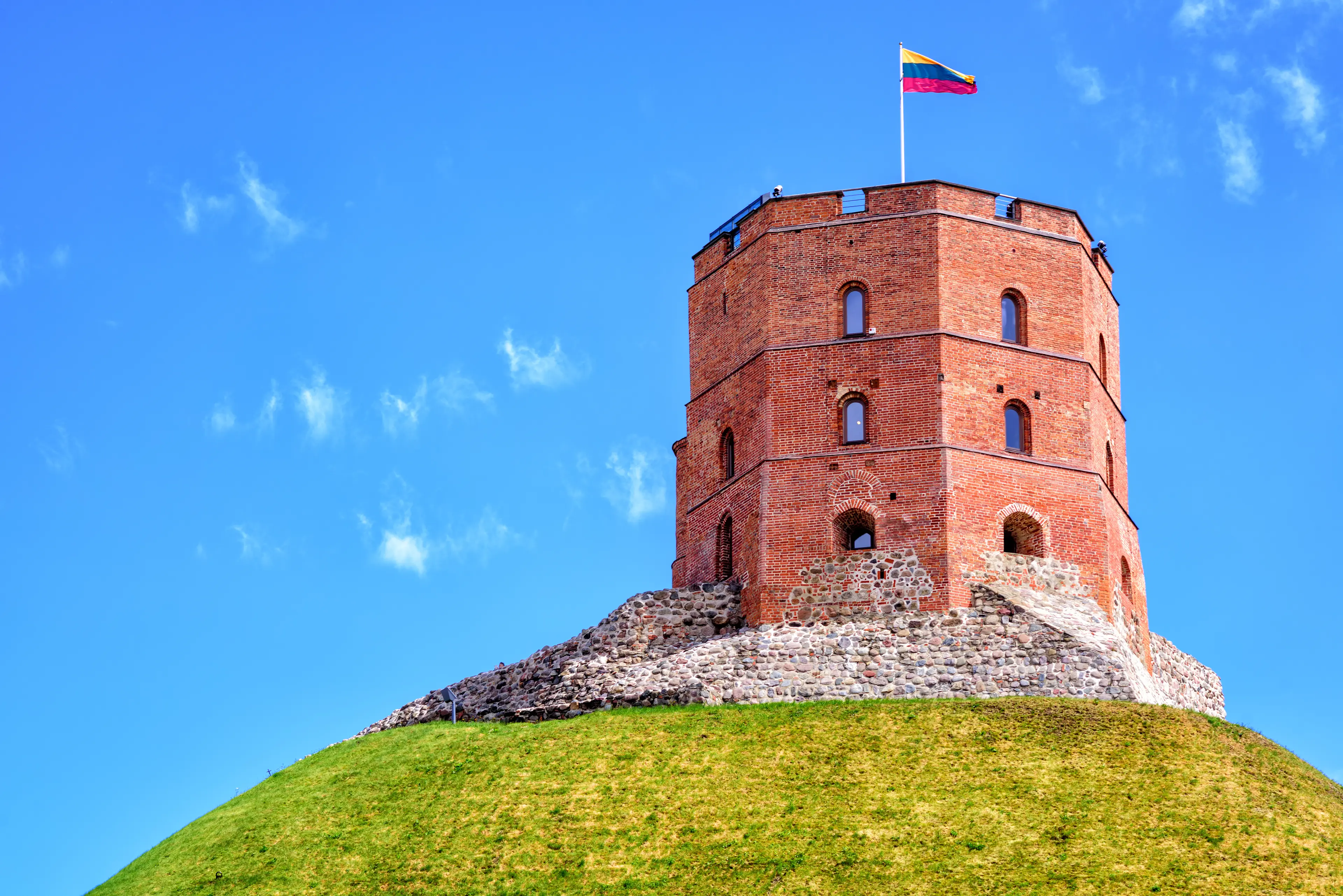
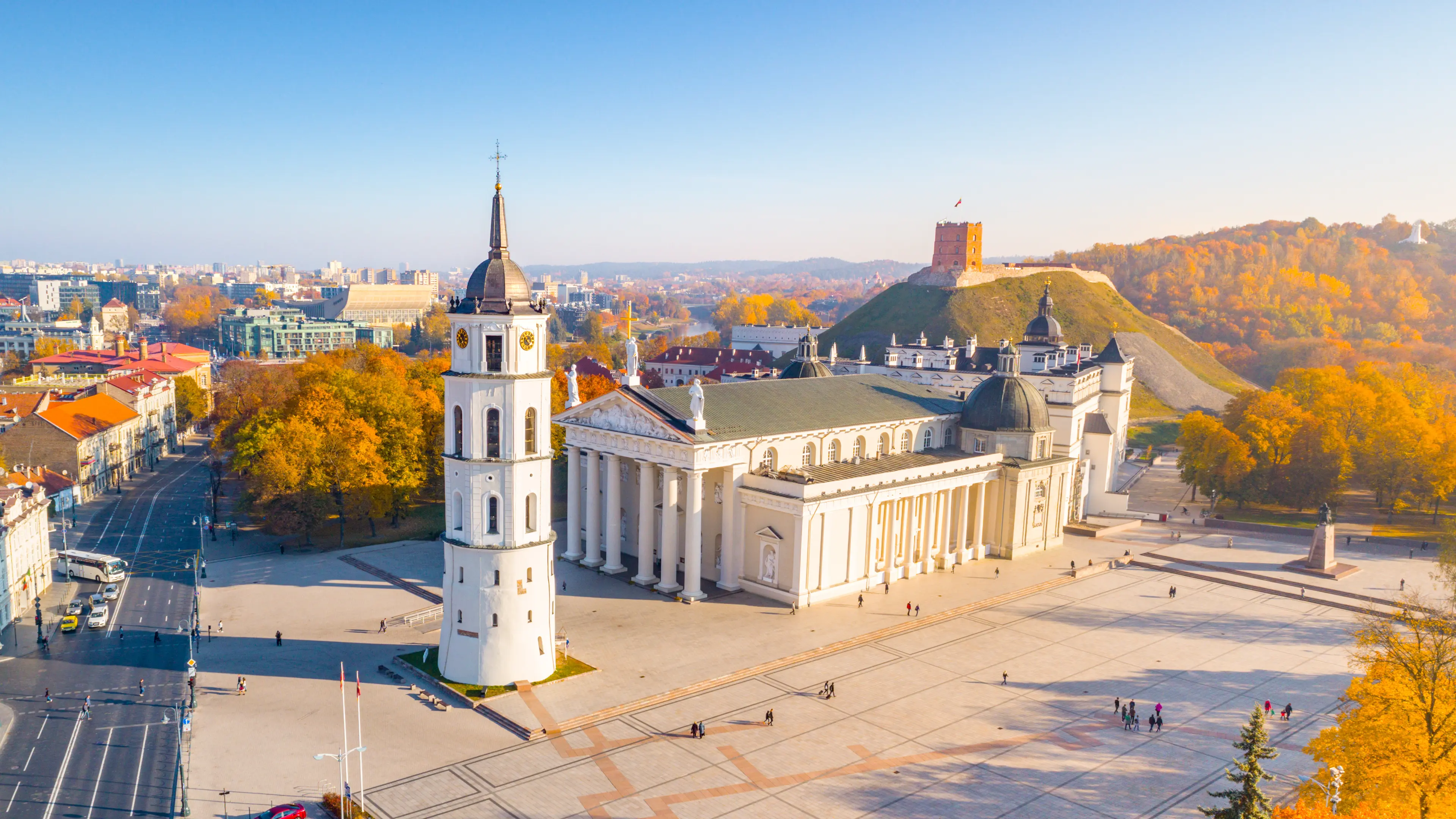
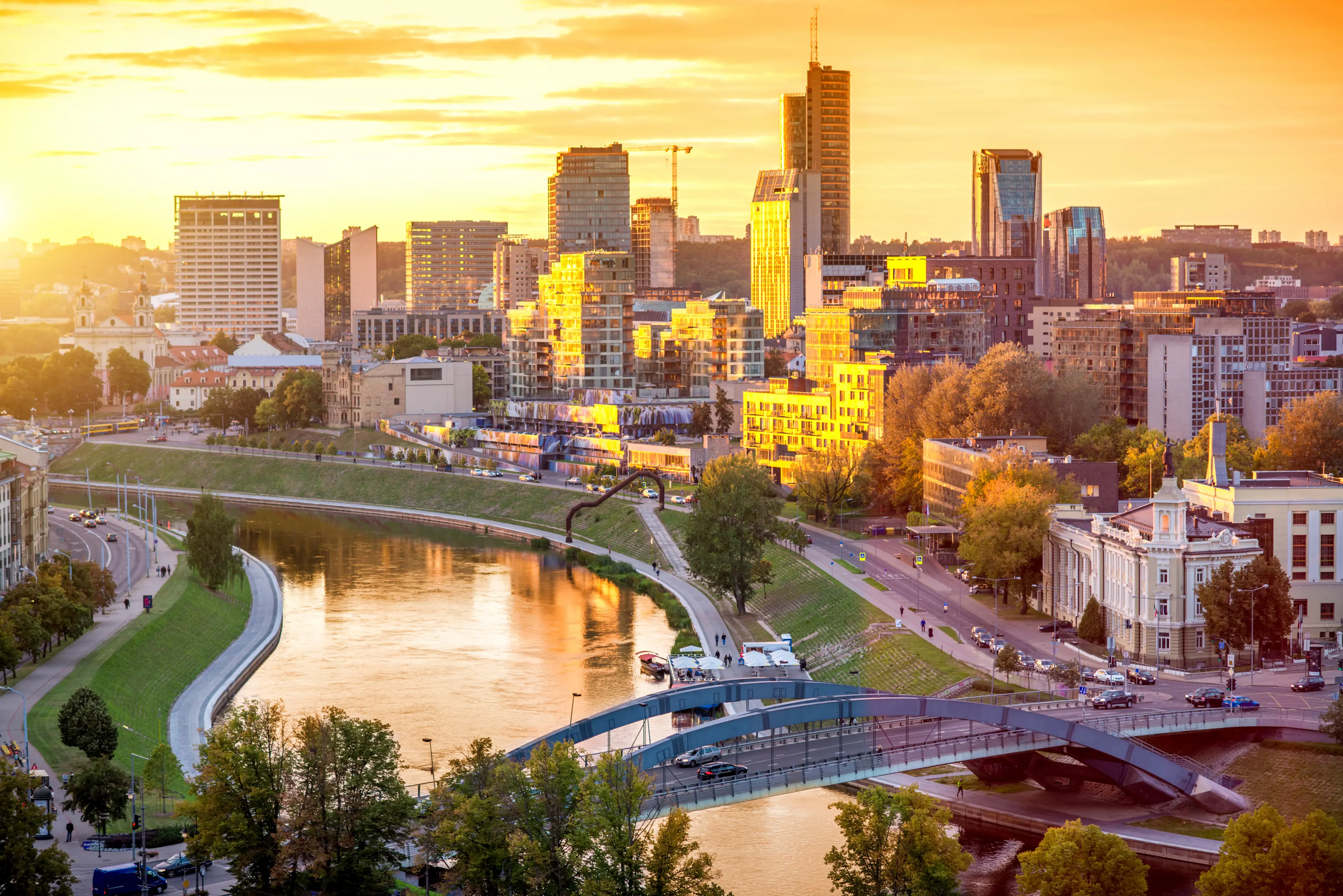
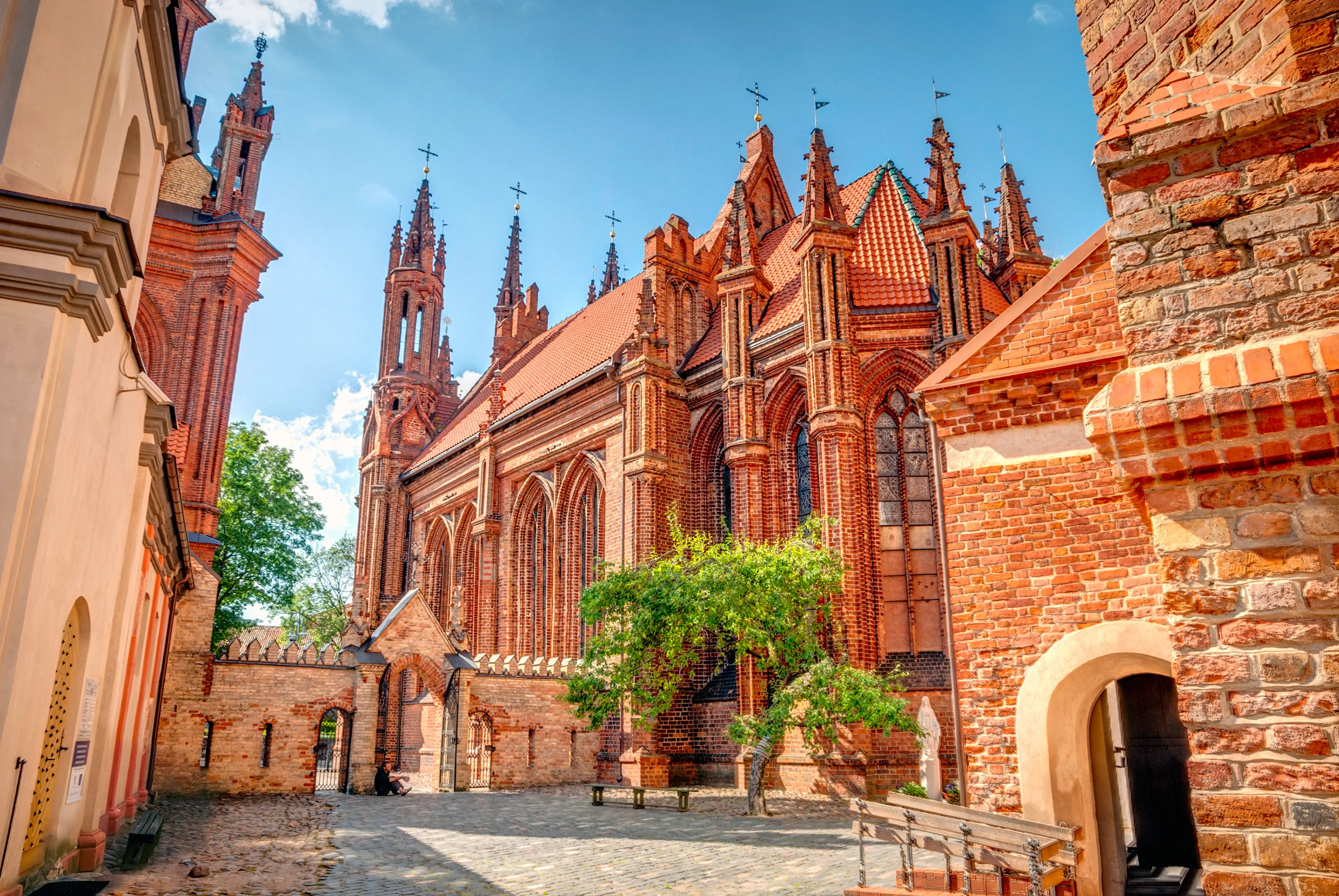
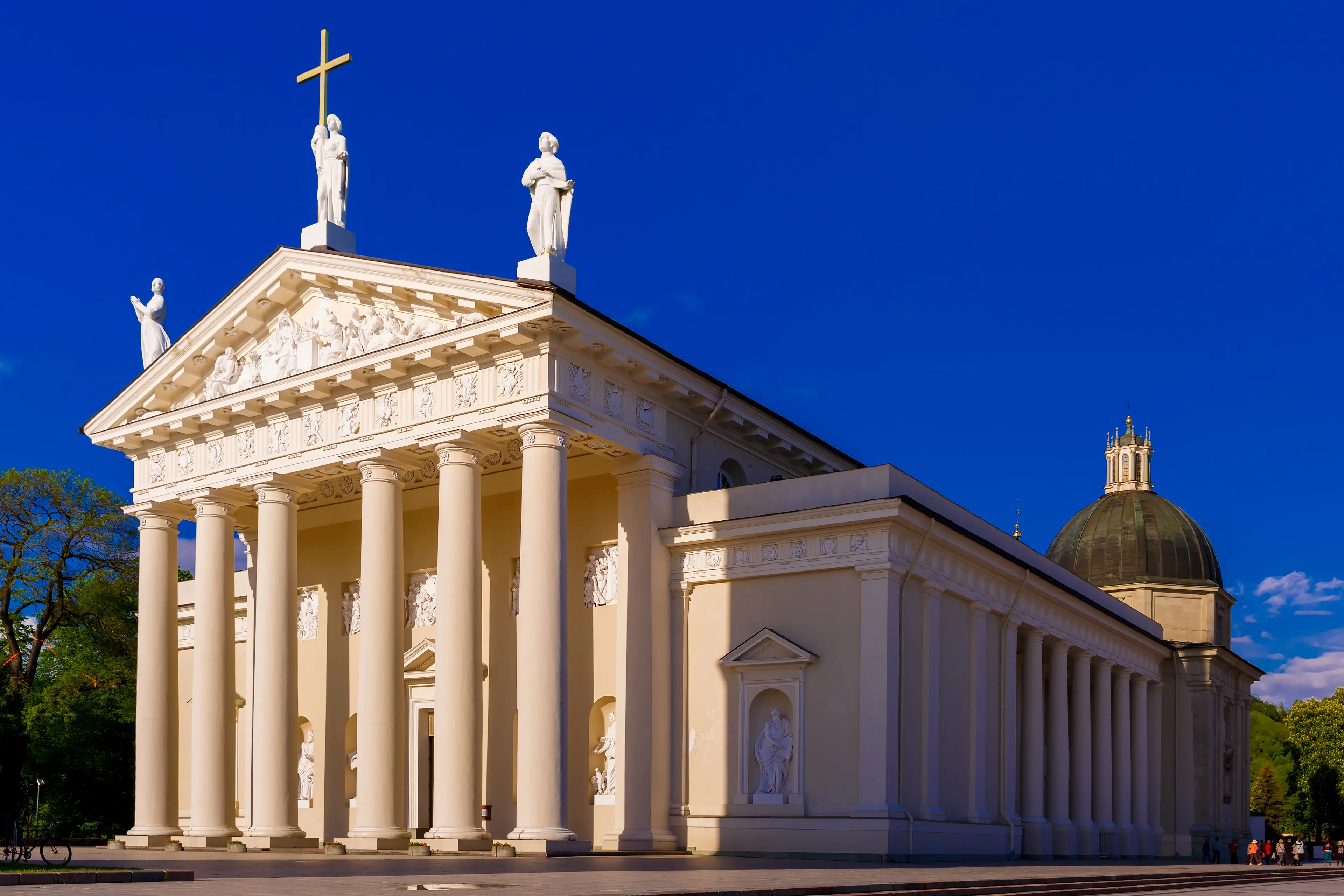
About Vilnius, Lithuania
Discover the enchanting city of Vilnius, Lithuania's vibrant capital. This city is a perfect blend of old and new, with its UNESCO World Heritage-listed Old Town showcasing stunning Baroque architecture, cobblestone alleys, and medieval churches. Visit the iconic Gediminas' Tower for panoramic views of the city, or explore the bohemian district of Užupis, a self-proclaimed independent republic. Vilnius also boasts a thriving food scene, with traditional Lithuanian cuisine and modern gastronomic experiences. Don't miss the Museum of Genocide Victims for a sobering look at Lithuania's history. With its rich culture, history, and welcoming locals, Vilnius promises an unforgettable travel experience.
2-Day Itinerary
Day 2
Visiting Vilnius Cathedral and Discovering the Bohemian Užupis
Morning
Start your second day with a visit to the stunning Vilnius Cathedral and its square. Don't miss the chance to climb up the bell tower for a great view of the city.
Lunch
Have lunch at a cozy café in the city center. Try some Lithuanian pastries and coffee.
Afternoon
Spend the afternoon exploring the bohemian neighborhood of Užupis, which has its own constitution and president. Visit its art installations and quirky shops.
Dinner
Enjoy a fine dining experience at a restaurant offering Lithuanian fusion cuisine. Pair your meal with a glass of local beer or mead.
Evening
End your day with a visit to the National Opera and Ballet Theatre for a performance. The theatre offers a variety of shows, from opera to ballet to drama.
Attractions in Itinerary (6)
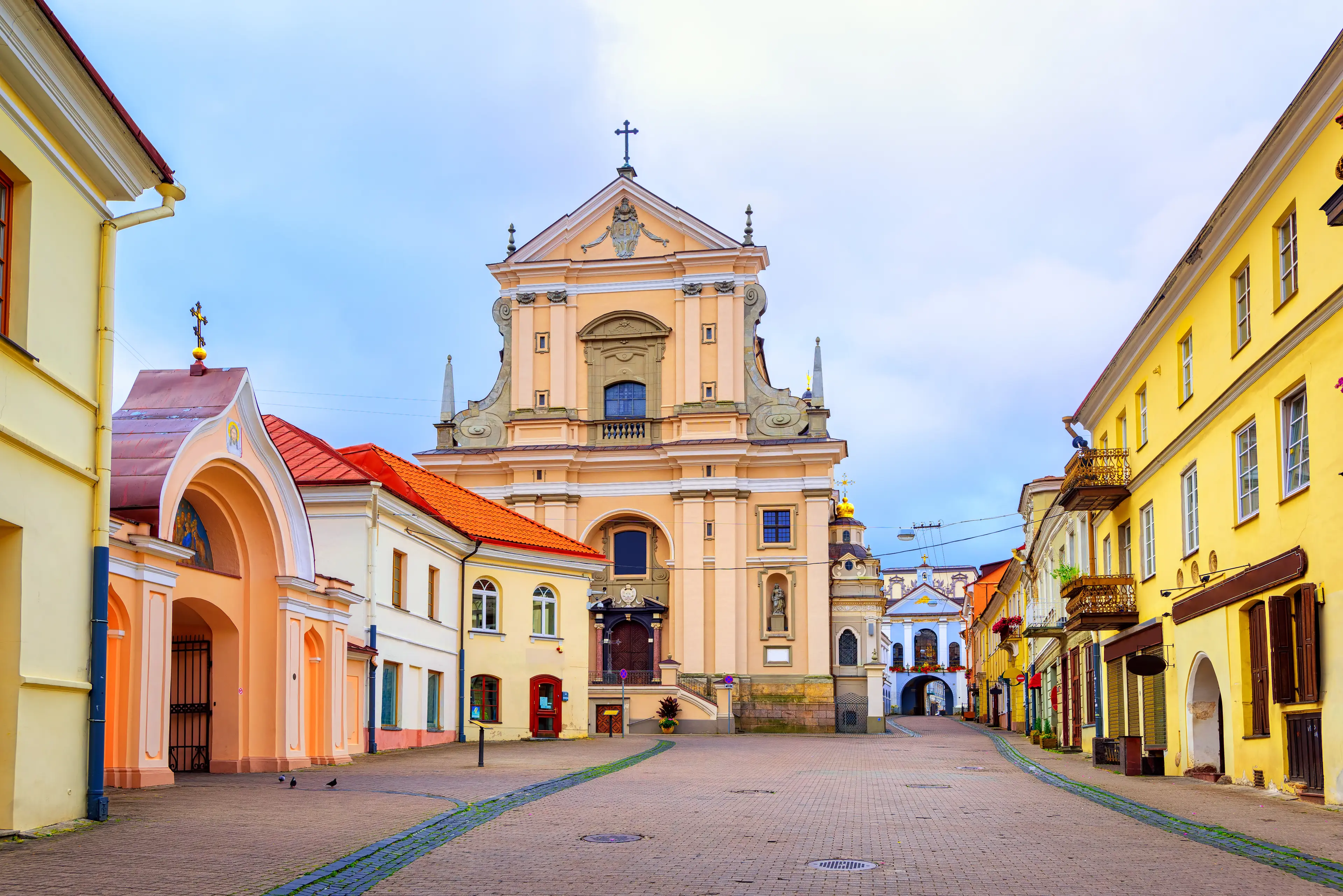
1Vilnius Old Town
One of the largest surviving medieval old towns in Northern Europe, it encompasses 74 quarters, with 70 streets and lanes numbering 1487 buildings with a total floor area of 1,497,000 square meters.
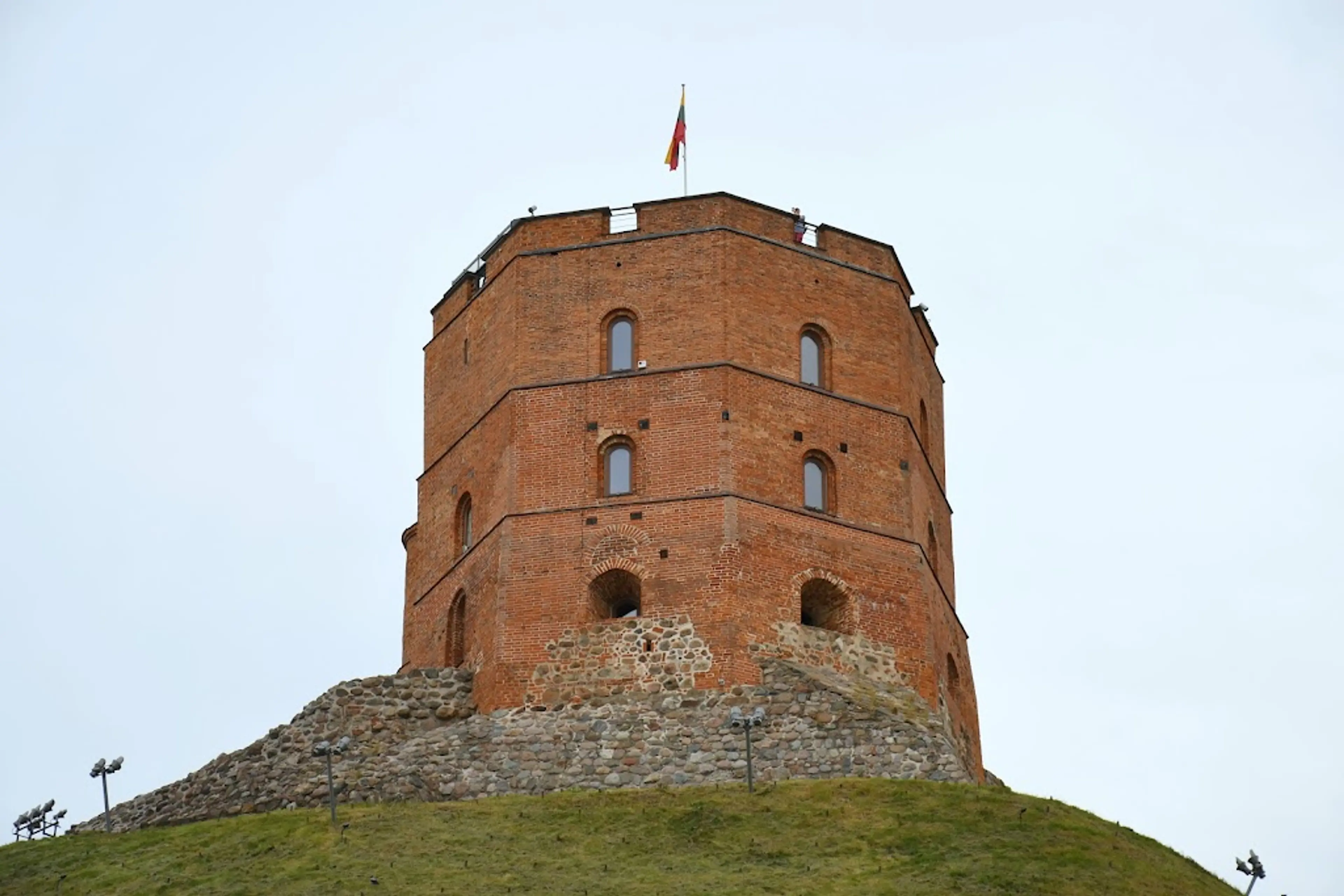
2Gediminas Castle Tower
The Gediminas Castle Tower is the remaining part of the Upper Castle in Vilnius. The first wooden fortifications were built by Gediminas, Grand Duke of Lithuania. The first brick castle was completed in 1409 by Grand Duke Vytautas.
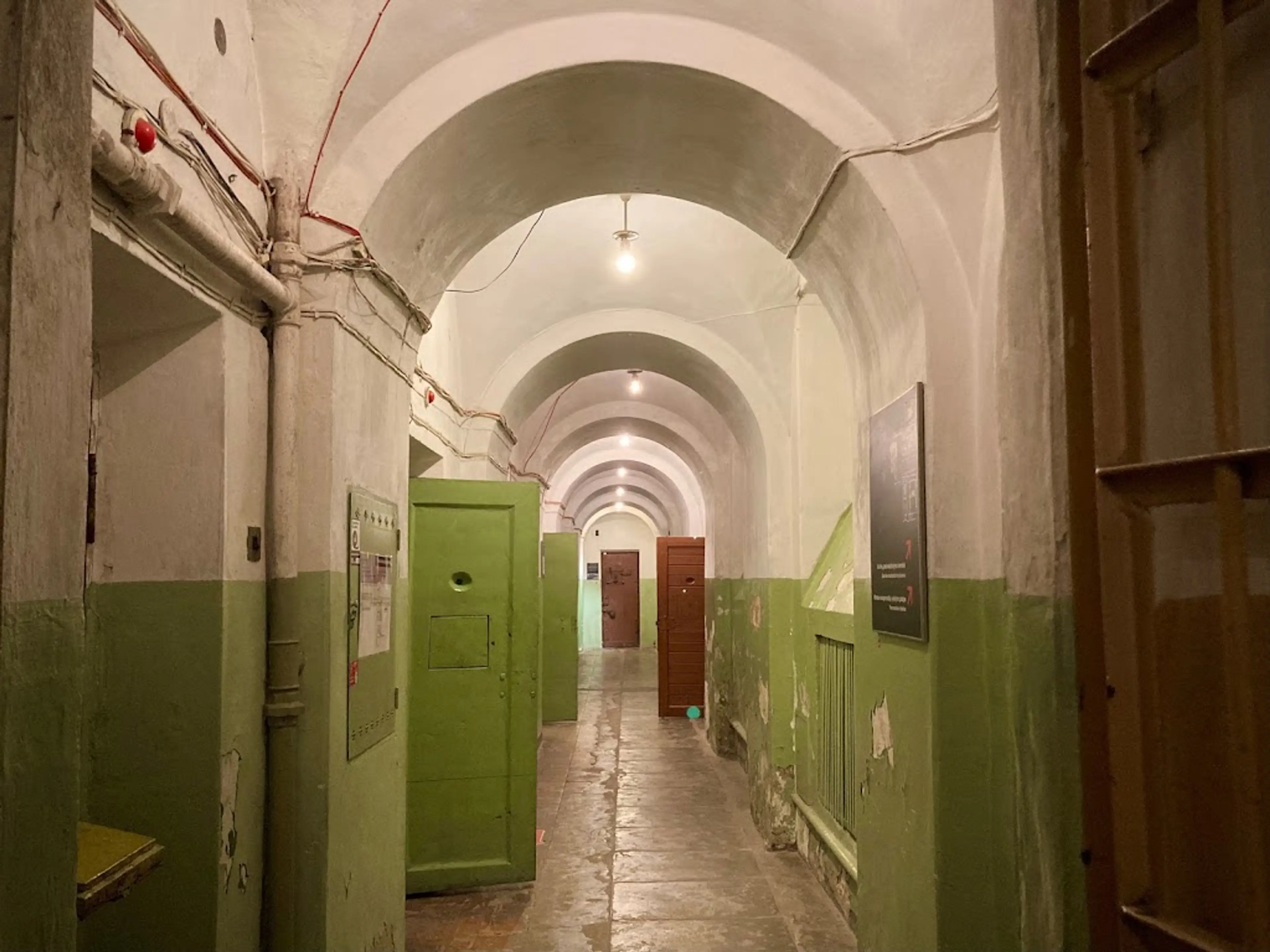
3Museum of Genocide Victims
The Museum of Genocide Victims is located in the former KGB headquarters across from the Lukiškės Square, therefore it is informally referred to as the KGB Museum. The museum is dedicated to collecting, exhibiting and interpreting the testimonies related to Lithuania's 50-year occupation by the Soviet Union, the Lithuanian resistance, and the victims of the arrests, deportations, and executions that took place during this period.
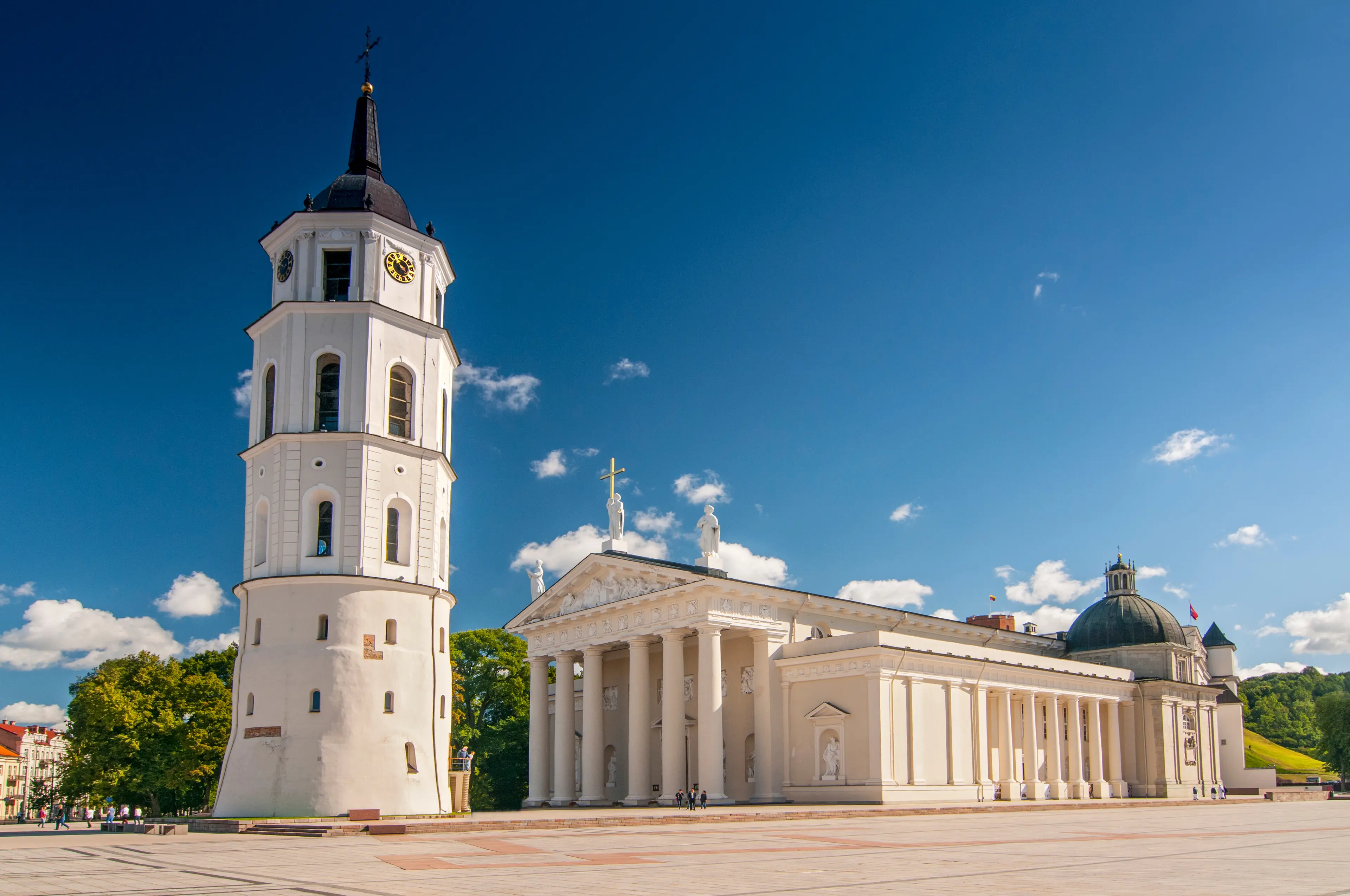
4Vilnius Cathedral
One of the most important Catholic buildings in Lithuania. It's also a venue for cultural events.
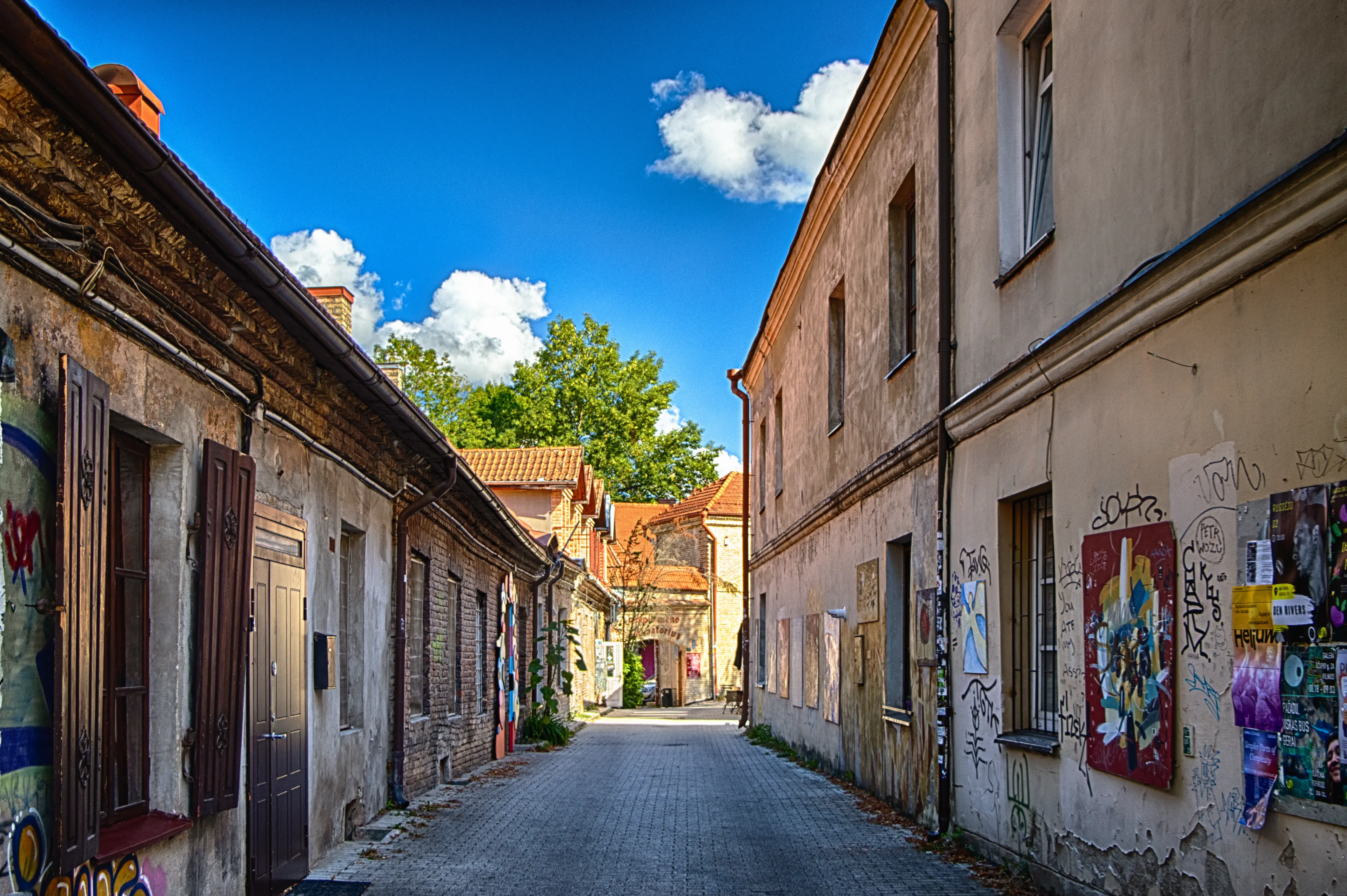
5Užupis
Užupis is a neighborhood in Vilnius, the capital of Lithuania, largely located in Vilnius' old town, a UNESCO World Heritage Site. Užupis means 'the other side of the river' in the Lithuanian language and refers to the Vilnia River.
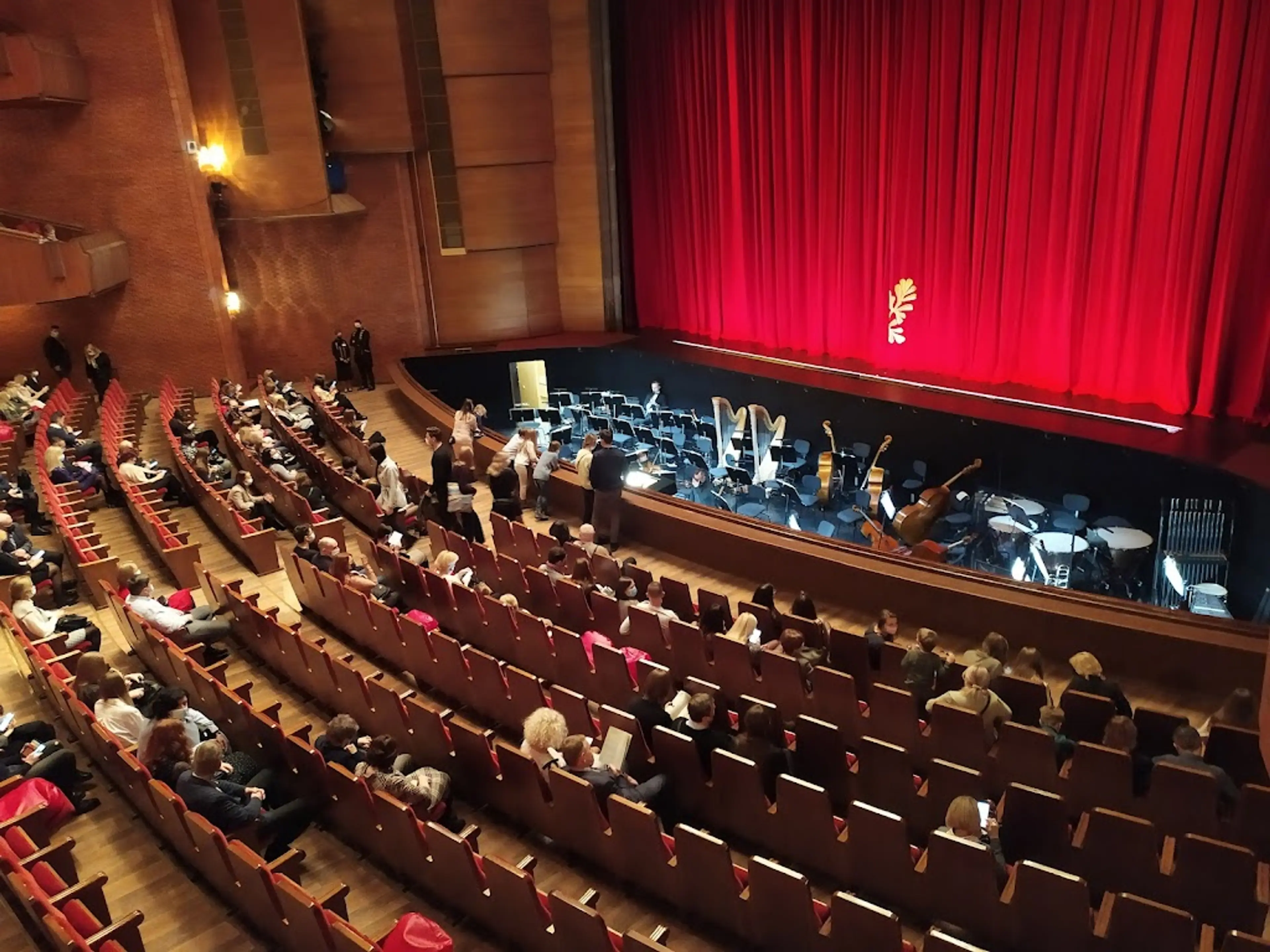
6National Opera and Ballet Theatre
The Lithuanian National Opera and Ballet Theatre is an opera house and ballet theatre in Vilnius. The repertoire includes classical and contemporary works from the world's musical theatre. The theatre seeks to foster and preserve the national art of opera and ballet, and to innovate by staging the most significant works of Lithuanian composers.
Local Food and Drinks (11)

Cepelinai
Cepelinai, also known as 'Zeppelin dumplings', are a national dish of Lithuania. They are large dumplings made from grated and riced potatoes and usually stuffed with minced meat, although sometimes cheese or mushrooms are used for the filling.

Šaltibarščiai
Šaltibarščiai is a popular Lithuanian cold beet soup. It's a perfect dish for hot summer days, usually served with boiled potatoes on the side. It's a unique blend of flavors that is very representative of Lithuanian cuisine.

Kibinai
Kibinai are traditional Lithuanian pastries, filled with mutton and onion, although variations with other fillings like cheese or mushrooms are also popular. They are a specialty of the Karaim people in Lithuania.

Šakotis
Šakotis is a traditional Lithuanian cake, often served at special occasions. It's a spit cake, made by painting layers of dough onto a rotating spit. The cake has a distinctive shape, similar to a tree's branches or a fireworks display.

Vėdarai
Vėdarai is a traditional Lithuanian dish, consisting of a sausage made from potatoes, usually served with sour cream and bacon. It's a hearty dish, perfect for cold winter days.

Midus
Midus is a traditional Lithuanian drink, considered to be the country's oldest alcoholic beverage. It's a type of mead, made from honey, water and yeast. It's a sweet and strong drink, often served at celebrations.
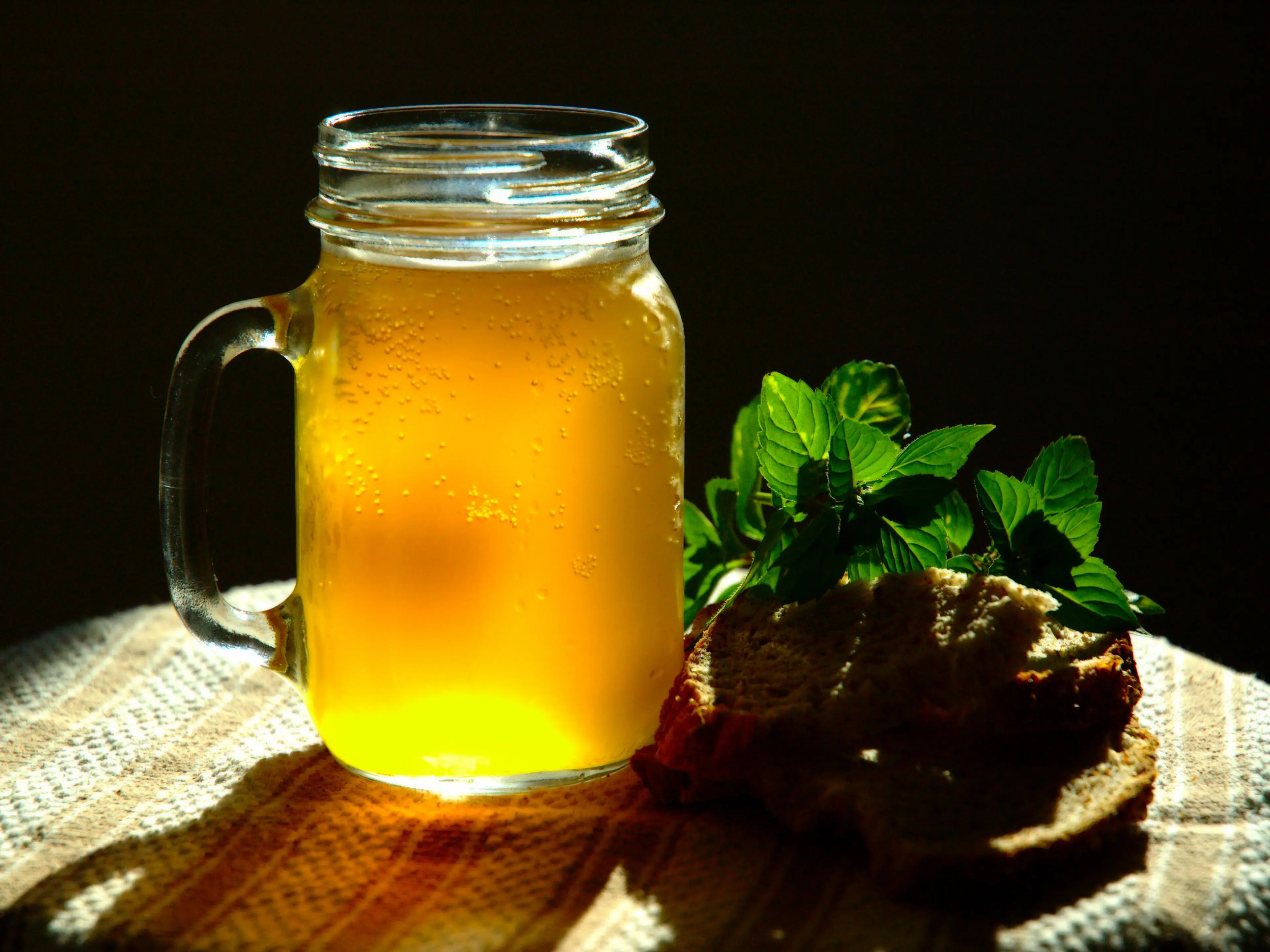
Gira
Gira is a traditional Lithuanian non-alcoholic beverage, made from fermented rye bread. It's a sweet and slightly tangy drink, often enjoyed during the summer months.

Bulviniai blynai
Bulviniai blynai, or potato pancakes, are a popular dish in Lithuania. They are made from grated potatoes, onions, eggs and flour, and are usually served with sour cream or a mushroom sauce.

Rugine Duona
Rugine Duona, or rye bread, is a staple of Lithuanian cuisine. It's a dark, dense and slightly sour bread, often served with meals or used to make sandwiches.

Riestainis
Riestainis is a traditional Lithuanian snack, made from rye bread. The bread is dried, then coated in garlic and other seasonings. It's a popular snack to enjoy with beer.

Žemaičių blynai
Žemaičių blynai, or Samogitian pancakes, are a regional dish in Lithuania. They are made from grated potatoes and usually filled with meat, although variations with other fillings like cheese or mushrooms are also popular.
Best time to visit
The best time to visit Vilnius, Lithuania is during the late spring and summer months, from May to September. During this period, the weather is warm and pleasant, perfect for sightseeing and outdoor activities. The city also hosts several festivals and events during these months, adding to the vibrant atmosphere. However, if you enjoy winter sports and don't mind the cold, December to February offers a different kind of charm with snow-covered landscapes.
How to get around
Walk
Vilnius has a compact old town, making it easy to explore on foot. Many of the city's main attractions, including the Vilnius Cathedral, Gediminas Tower, and the Presidential Palace, are within walking distance of each other.
Bicycle
Vilnius has a well-developed network of bicycle paths, and bicycles can be rented from various locations around the city. This is a great way to explore the city's parks and green spaces.
Public Bus
Vilnius has an extensive public bus network that covers the entire city. Buses are frequent and reliable, and tickets can be purchased from the driver or at newsstands.
Trolleybus
Trolleybuses are another popular form of public transport in Vilnius. They are particularly useful for getting around the city center and the old town.
Train
There are a few train routes in Vilnius, mainly used for reaching the suburbs or for intercity travel. The main train station is conveniently located in the city center.
Taxi
Taxis are readily available in Vilnius, and can be hailed on the street, booked by phone, or via a mobile app. They are a convenient but more expensive way to get around.
Ridesharing
Ridesharing services, such as Uber and Bolt, operate in Vilnius. These can be a convenient and cost-effective way to get around, especially if you're traveling in a group.
Car Rental
Renting a car can be a good option if you plan to explore outside of Vilnius. However, parking can be difficult in the city center, and traffic can be heavy during peak times.
Scooter
Electric scooters are a popular way to get around Vilnius. They can be rented via a mobile app, and are a fun and eco-friendly way to explore the city.
Important information
Currency LTL
Time zoneUTC+2
Driving sideRight
Emergency phone112
Drinking waterYes
Power sockets
Voltage230 V
Things to know about Vilnius, Lithuania as a first time visitor
1
The official language is Lithuanian, but English is widely spoken especially among younger people.
2
The currency is the Euro (€). Credit cards are widely accepted, but it's always good to have some cash on hand.
3
Public transportation is reliable and affordable. You can use buses, trolleybuses, and trains to get around the city.
4
Taxis are also available and can be hailed on the street, booked online, or through a mobile app.
5
Vilnius has a temperate climate. Summers (June to August) are warm with temperatures ranging from 70°F to 75°F (21°C to 24°C). Winters (December to February) can be very cold with temperatures often dropping below 32°F (0°C).
6
Lithuanian cuisine is hearty and features a lot of meat, potatoes, and dairy products. Be sure to try some traditional dishes like cepelinai (potato dumplings) and šaltibarščiai (cold beetroot soup).
7
Tipping is customary in Vilnius. It's common to leave a 10% tip in restaurants and cafes.
8
Vilnius is generally safe, but like any city, it's important to be aware of your surroundings and take basic safety precautions.
9
The city is very walkable, and many of the main sights are located within a compact area. It's a good idea to wear comfortable shoes.
10
Lithuania is in the Eastern European Time Zone (EET), which is 2 hours ahead of Coordinated Universal Time (UTC+2).
11
The electrical outlets in Lithuania use Type F plugs, the same as in most of Europe. The standard voltage is 220 V.
12
Lithuania is a member of the European Union, so EU citizens can enter with a valid ID card. Non-EU citizens will need a passport, and possibly a visa, depending on their country of origin.
13
Tap water is safe to drink in Vilnius, but bottled water is also readily available.
14
Public restrooms are not always free. It's common to pay a small fee, so keep some coins handy.
15
Smoking is banned in all public places, including bars and restaurants.
16
Vilnius has a vibrant nightlife with many bars, clubs, and live music venues. The legal drinking age is 20.
17
Lithuania has a zero-tolerance policy for drinking and driving. The legal blood alcohol limit is 0.00%.
18
Pharmacies are widely available throughout Vilnius. Over-the-counter medicines are available, but for specific medications, you may need a prescription.
19
Vilnius has free public Wi-Fi in many areas, including parks, squares, and public transportation.
20
The emergency number in Lithuania is 112. It can be dialed free of charge from any phone, including mobile phones without a SIM card.
Basic Lithuanian to know as a first time visitor
English phrase | Native phrase | Pronunciation | When to use it |
|---|---|---|---|
Hello | Labas | Lah-bahs | Greeting someone |
Goodbye | Viso gero | Vee-soh geh-roh | Leaving or saying goodbye |
Please | Prašau | Prah-shau | Making a request |
Thank you | Ačiū | Ah-choo | Expressing gratitude |
Yes | Taip | Taip | Agreeing or confirming |
No | Ne | Neh | Disagreeing or denying |
Excuse me | Atsiprašau | At-see-prah-shau | Getting attention or apologizing |
I'm sorry | Atsiprašau | At-see-prah-shau | Apologizing |
Do you speak English? | Ar kalbate angliškai? | Ar kal-bah-teh ang-lish-kai | Asking if someone speaks English |
I don't understand | Aš nesuprantu | Ahsh neh-soo-pran-too | Not understanding something |
Where is...? | Kur yra...? | Koor yrah | Asking for directions |
Bathroom | Tualetas | Too-ah-let-as | Looking for a bathroom |
Help | Pagalba | Pah-gahl-bah | In need of assistance |
Food | Maistas | Mai-stas | Talking about food |
Water | Vanduo | Van-duo | Requesting water |
Beer | Alus | Ah-loos | Ordering a beer |
Wine | Vynas | Vee-nas | Ordering wine |
Check, please | Sąskaitą, prašau | Sahs-kai-tah, prah-shau | Requesting the check at a restaurant |
How much does it cost? | Kiek tai kainuoja? | Keek tai kai-noo-ya | Asking for the price |
Call a doctor | Iškviesti gydytoją | Eesh-kvee-est-ee gyd-yto-ya | In case of a medical emergency |
Packing List
Clothing
Underwear
Socks
T-shirts
Pants/Jeans
Comfortable walking shoes
Sweater or jacket (depending on the season)
Sleepwear
Swimwear (if your hotel has a pool)
Weather-appropriate accessories (hat, gloves, sunglasses)
Toiletries
Toothbrush and toothpaste
Deodorant
Shampoo and conditioner
Body wash or soap
Razor and shaving cream
Hairbrush or comb
Makeup and makeup remover
Hand sanitizer
Travel-sized first aid kit
Travel documents and essentials
Passport
Driver's license or ID card
Credit and debit cards
Cash in local currency
Hotel reservation confirmation
Travel insurance documents
Emergency contacts and addresses
Electronics and gadgets
Smartphone and charger
Headphones
Camera and charger
Portable power bank
Travel adapter
E-reader or tablet for entertainment
Miscellaneous items
Snacks for the journey
Reusable water bottle
Books or magazines for entertainment
Travel pillow and blanket
Earplugs and eye mask
Travel-sized laundry detergent
Ziplock bags for organization
Weather Conditions
Vilnius, Lithuania experiences a temperate continental climate with a mix of all four seasons. During the winter months, from December to February, Vilnius can be quite cold with temperatures often dropping below freezing, averaging between -9°C to -1°C (16°F to 30°F). It's not uncommon for the city to be covered in snow during this period. Therefore, if you're planning a winter visit, pack warm clothing, including a heavy coat, gloves, and a hat. Spring, from March to May, sees a gradual increase in temperatures, ranging from 0°C to 15°C (32°F to 59°F). This is a beautiful time to visit as the city starts to bloom, but it's advisable to pack a mix of light and warm clothing due to the unpredictable weather. Summer, from June to August, is the warmest season with temperatures averaging between 15°C to 22°C (59°F to 72°F). This is a great time to explore the city's outdoor attractions. However, occasional rain showers are common, so carrying a light rain jacket or an umbrella would be wise. Autumn, from September to November, sees temperatures dropping from 15°C to 5°C (59°F to 41°F). The city is particularly beautiful during this season as the leaves change color. Layered clothing would be the best option during this time, and don't forget to pack a light jacket or sweater. Regardless of the season, it's always a good idea to check the weather forecast before your trip to Vilnis, as weather conditions can change rapidly. Enjoy your visit to this beautiful city!
| Month | Hi / Lo (°C) | Weather Overview |
|---|---|---|
January | 1° / -9° | January is the coldest month in Vilnius, with temperatures often dropping below freezing. Dress warmly and enjoy the beautiful snow-covered city. |
February | 3° / -9° | February is still very cold, but the days start to get longer. It's a great time for winter sports enthusiasts. |
March | 7° / -4° | March sees the beginning of spring with temperatures slowly rising, but still expect some chilly days. |
April | 13° / 1° | April is a transitional month with the last of the winter chill fading away. The city starts to bloom, making it a beautiful time to visit. |
May | 18° / 6° | May is a pleasant month with moderate temperatures. It's a great time to explore the city and its parks. |
June | 22° / 10° | June marks the start of summer with longer days and warmer temperatures. Perfect for outdoor activities and sightseeing. |
July | 24° / 12° | July is the warmest month in Vilnius. Enjoy the city's many outdoor cafes, festivals, and events. |
August | 23° / 11° | August is still quite warm, but with fewer tourists. It's an excellent time to visit if you prefer a quieter vacation. |
September | 19° / 7° | September sees the start of autumn with cooler temperatures and beautiful fall foliage. It's a great time for hiking and photography. |
October | 13° / 3° | October is a cool month with the city's parks and streets adorned with autumn colors. Pack some warm clothes. |
November | 7° / -1° | November is a chilly month with shorter days. It's a quiet time to visit, perfect for those who enjoy museums and indoor activities. |
December | 2° / -6° | December is a festive month with the city beautifully lit for Christmas. It's cold, so pack warm clothes and enjoy the holiday spirit. |
Did you know?
Places near by Vilnius, Lithuania
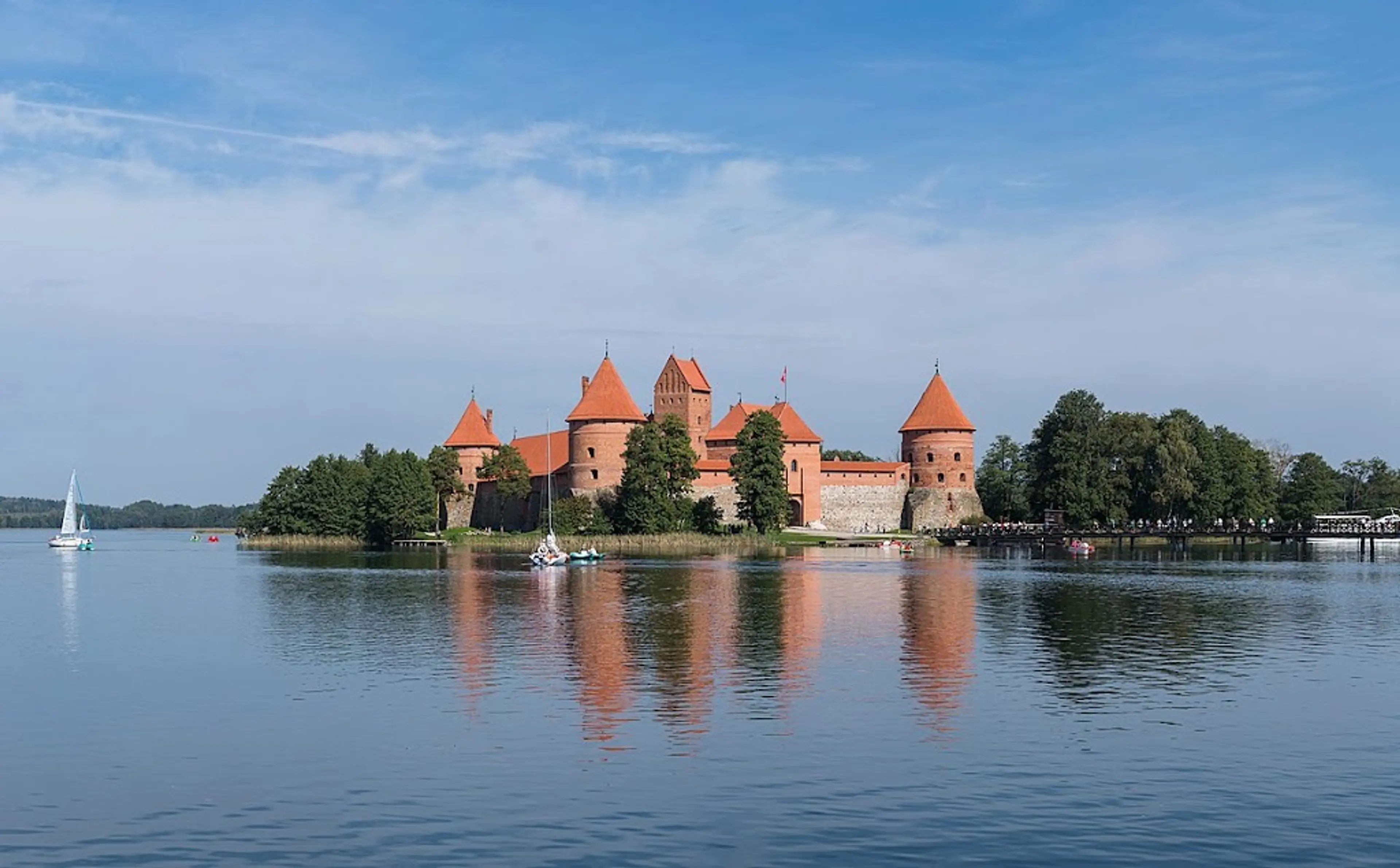
Trakai Island Castle
A stunning 14th-century castle located on an island in Lake Galvė.
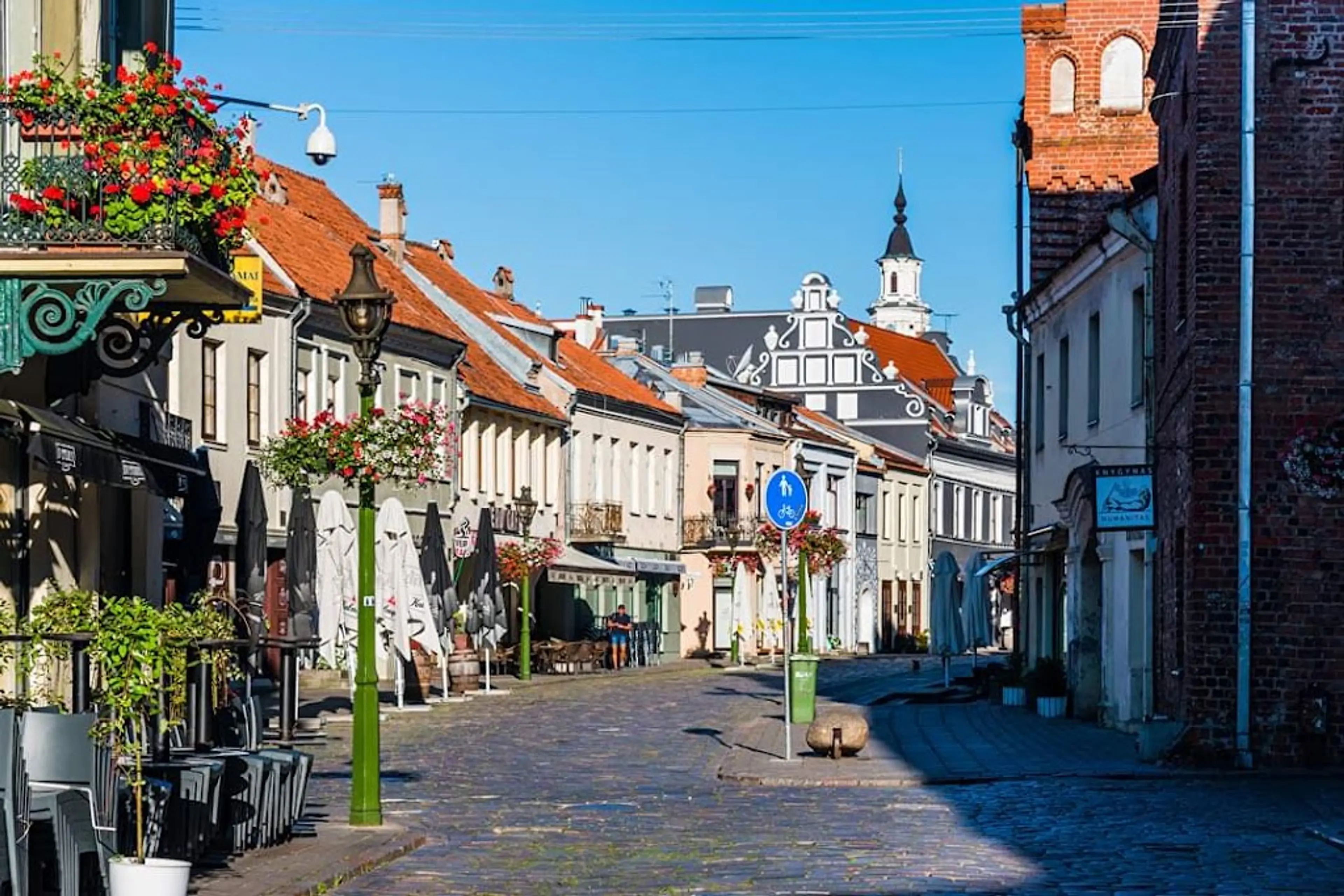
Kaunas
The second-largest city in Lithuania, known for its interwar architecture and Old Town.
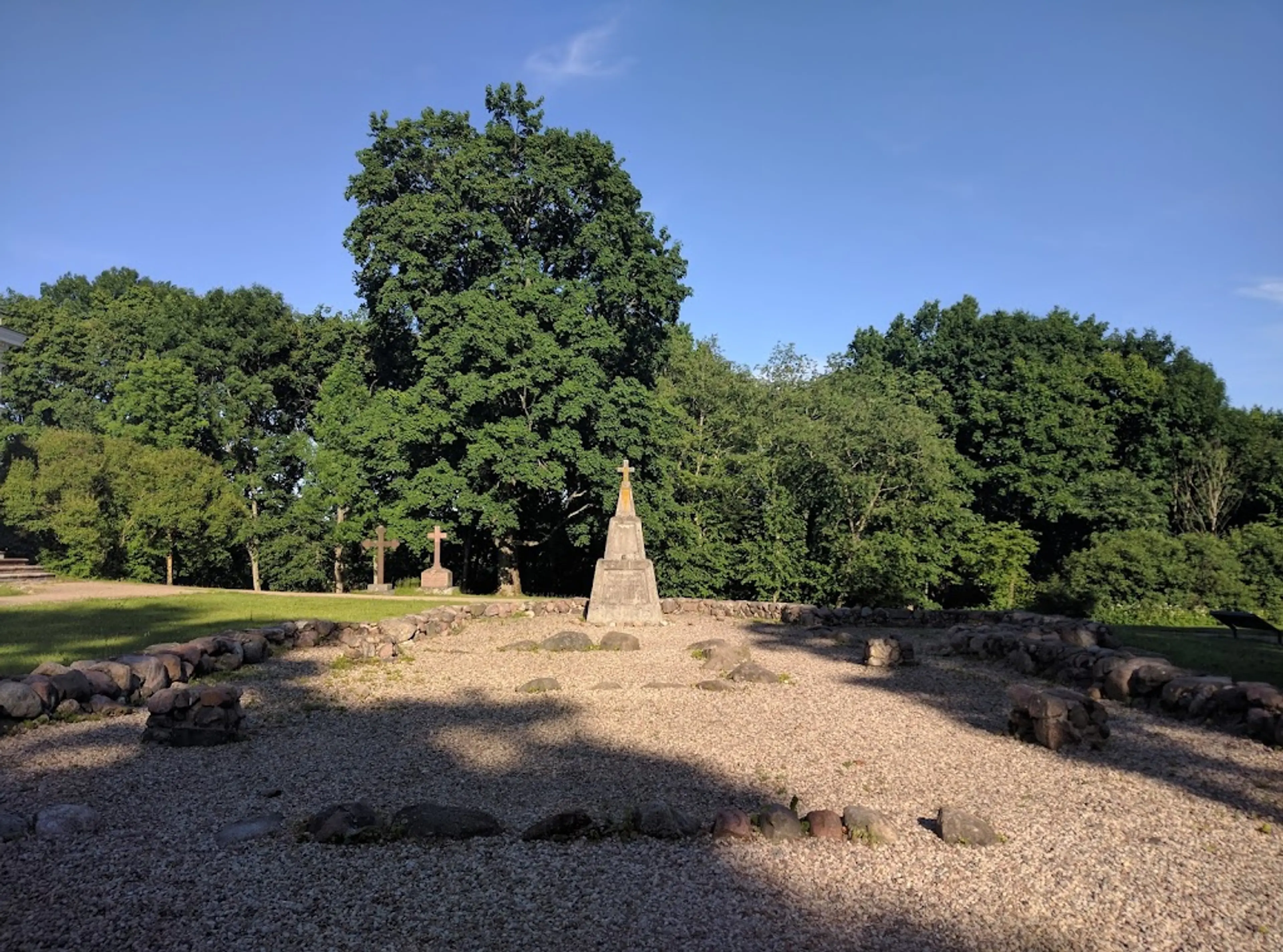
Kernavė Archaeological Site
A UNESCO World Heritage site, known as the 'Troy of Lithuania'.

Grūtas Park
An open-air museum exhibiting Soviet-era statues and other political monuments.
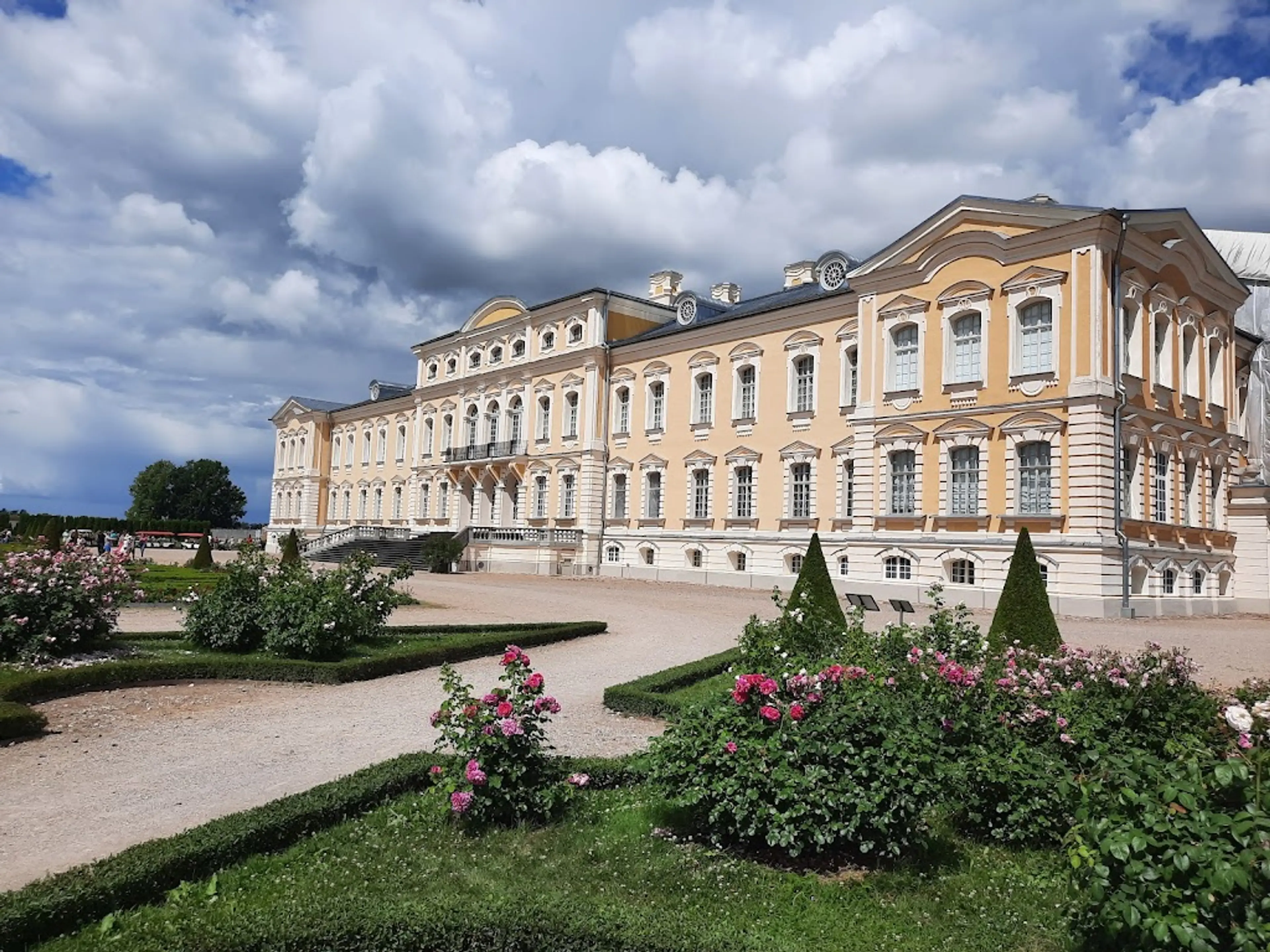
Rundāle Palace
One of the two major baroque palaces built for the Dukes of Courland in Latvia.
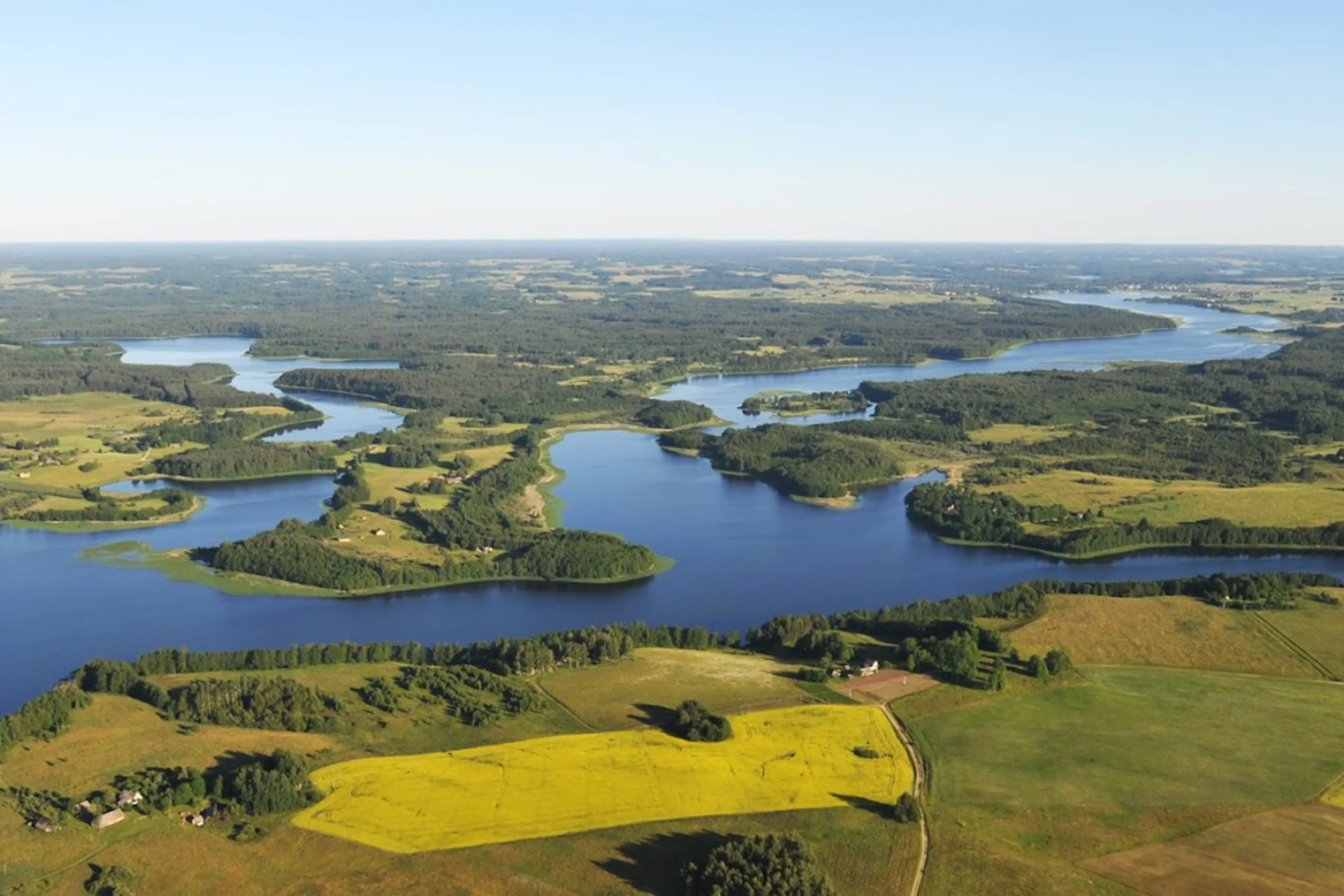
Aukštaitija National Park
A beautiful national park known for its lakes and traditional villages.
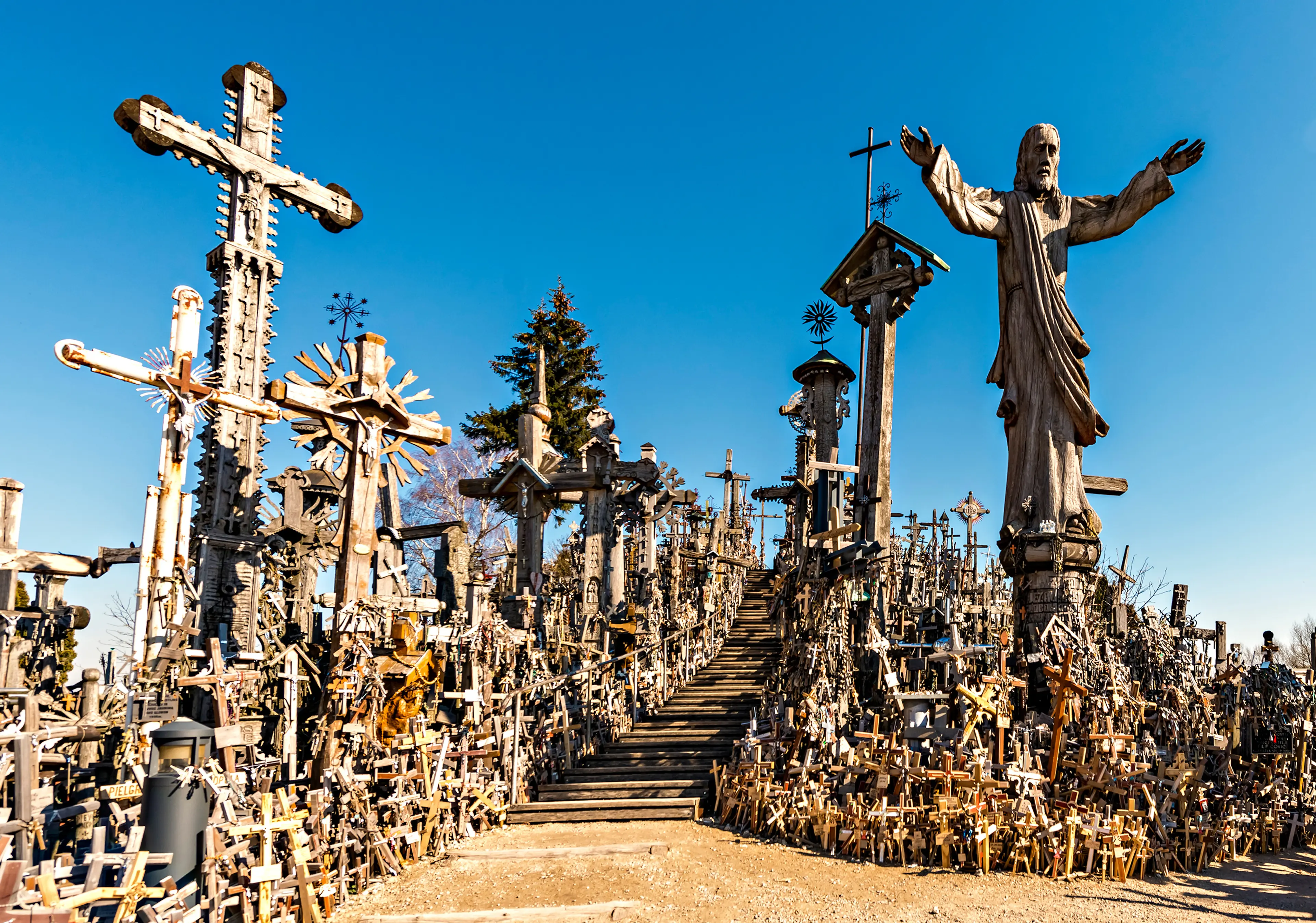
Hill of Crosses
A site of pilgrimage with thousands of crosses of various sizes.
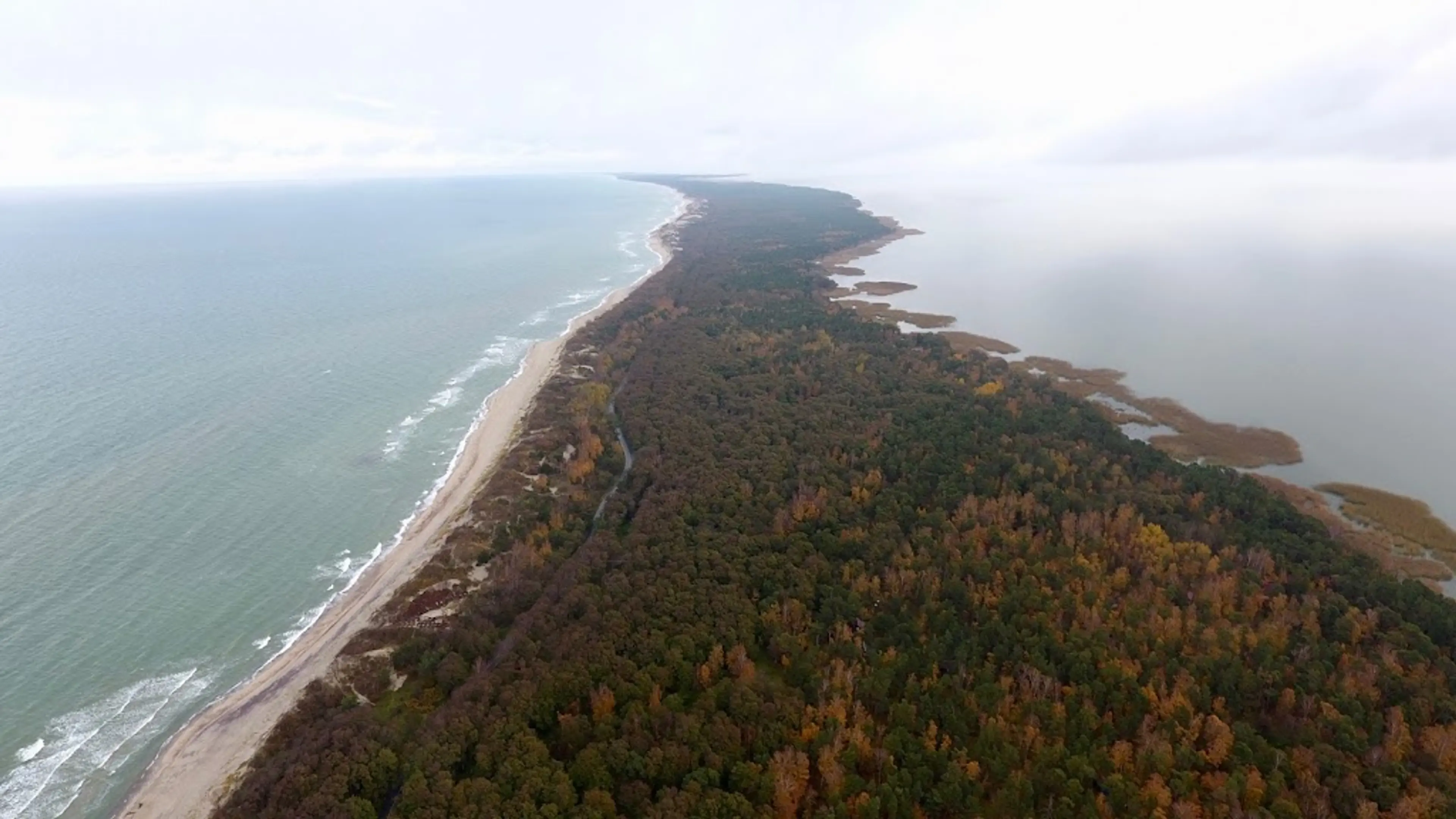
Curonian Spit
A UNESCO World Heritage site, known for its sand dunes and unique ecosystem.
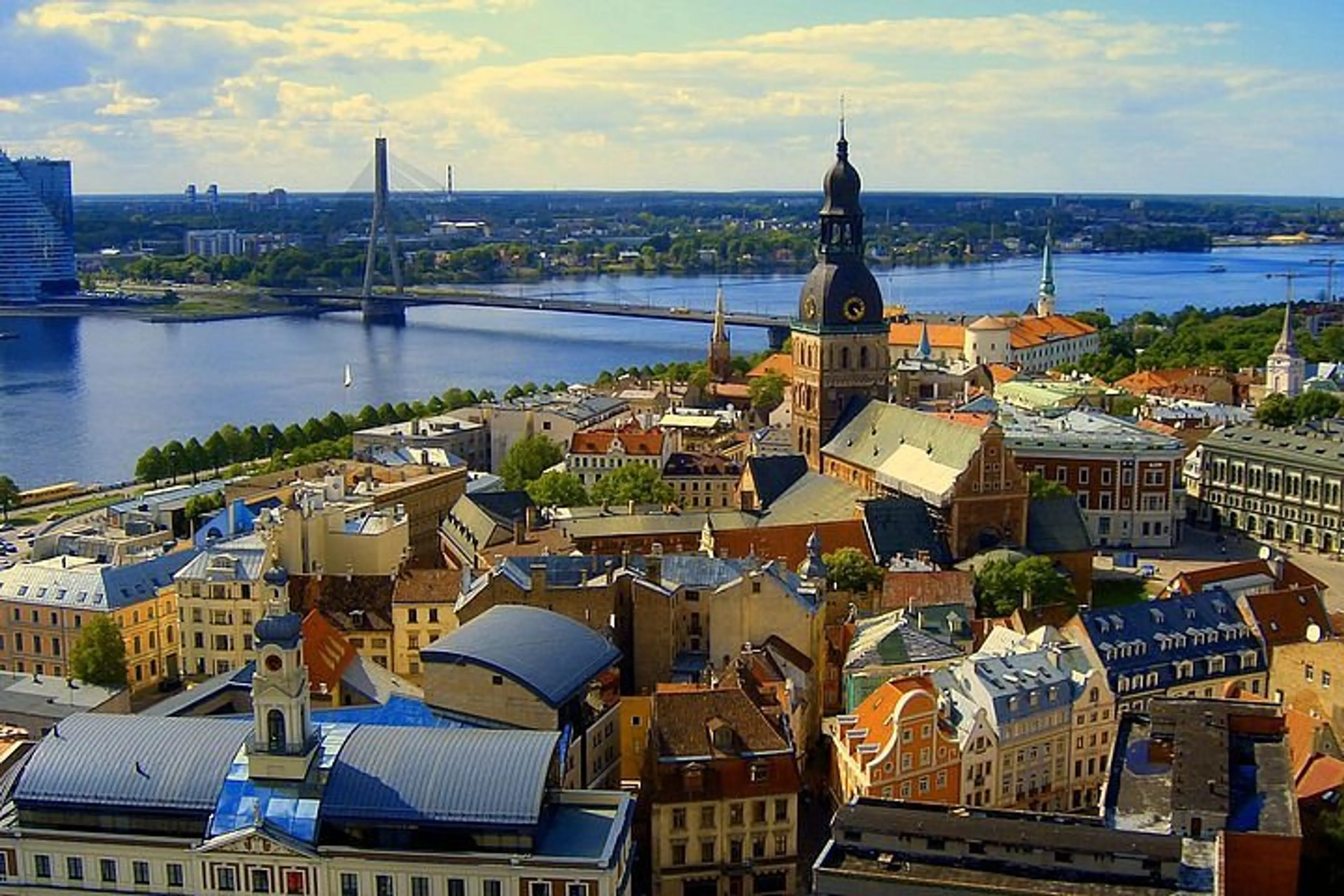
Riga
The capital of Latvia, known for its beautiful Old Town and Art Nouveau architecture.
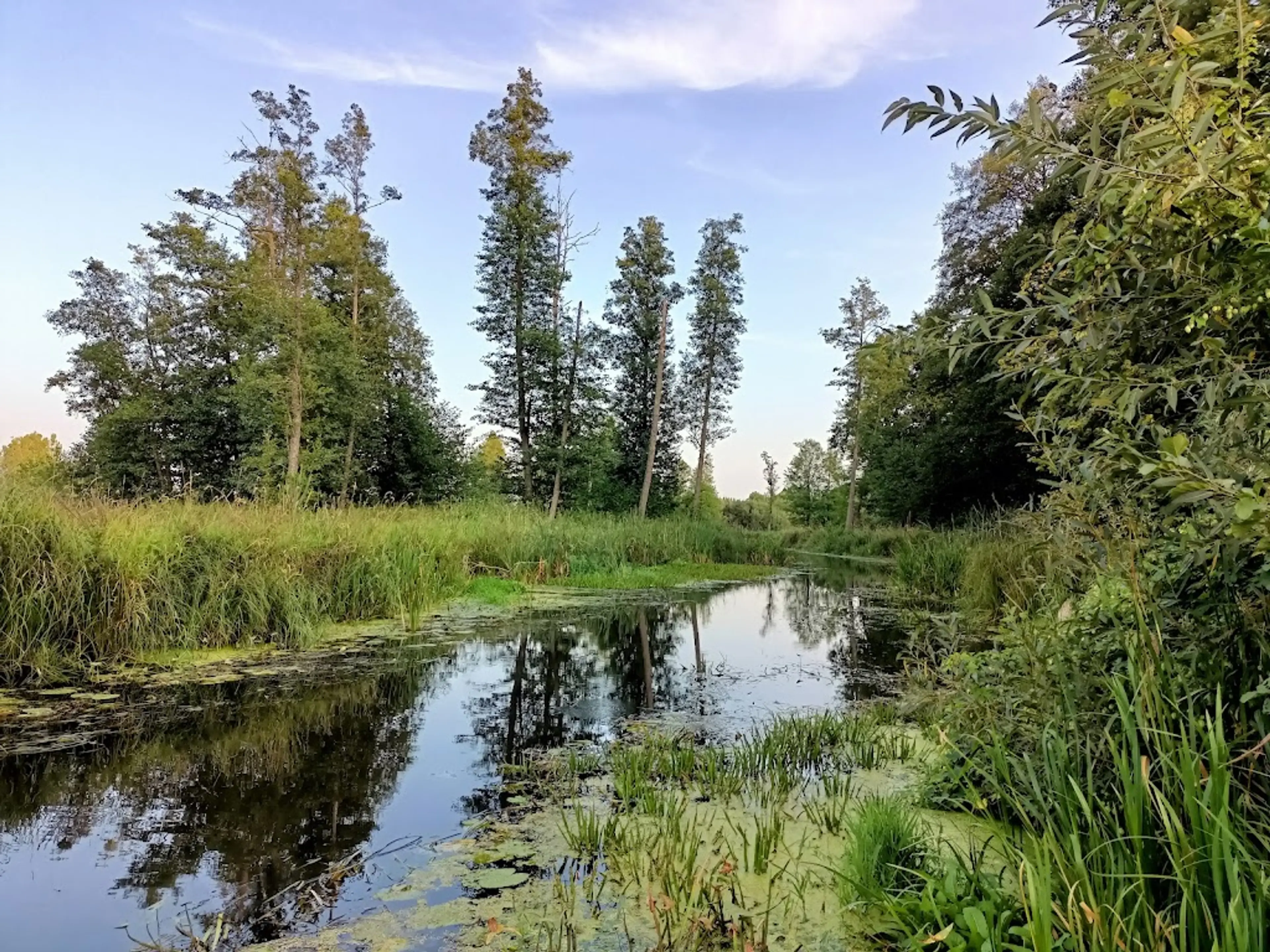
Białowieża Forest
One of the last and largest remaining parts of the primeval forest that once covered much of Europe.